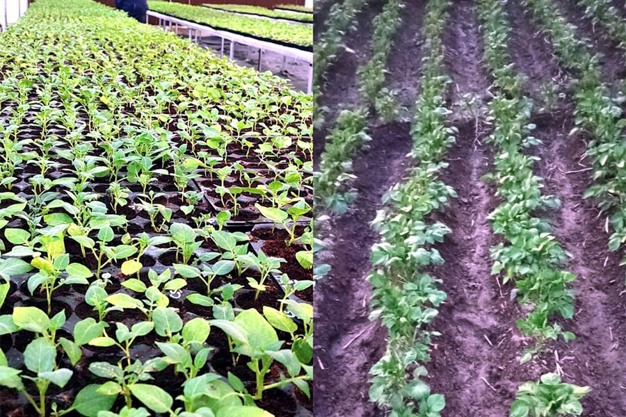In Tripura, India, a shift towards advanced Apical Rooted Cutting (ARC) technology in potato farming is underway, moving away from traditional varieties such as "Jyoti" and "TPS". Ratan Lal Nath, the state's Agriculture and Farmers Welfare Minister, highlighted the transformative impact of ARC technology on productivity and farmer livelihoods during a press briefing in Nagicherra.

Statistics underscore the effectiveness of ARC, with productivity leaps from 18 tons to up to 61 tons per hectare. Notable achievements include Sajal Bhowmik of South Tripura with 61.50 MT per hectare, alongside Harendra Das from Dhalai and Brajlal Debnath from South Tripura with significant yields as well.
The ARC method, with origins in Vietnam and Kenya, utilizes apical cuttings from tissue-cultured plantlets, which are rooted in polyhouses before field transplantation. This approach not only enhances yield but also cuts costs and elevates seed quality. The Horticulture Research Center in Nagichhara, which led the ARC initiative, has found the process to integrate well into existing crop rotation systems.
Initially introduced to 104 farmers across eight districts, the ARC program, encompassing five potato varieties, is set to expand due to its success. Nath's vision extends to making ARC seedlings accessible to a broader farmer base, underpinning a sustainable and self-reliant agricultural ecosystem in Tripura.
The state government's commitment to this agricultural shift promises extensive support through resources, training, and subsidies, aiming to position Tripura as a frontrunner in innovative and sustainable agriculture.
Source: Northeast Today










